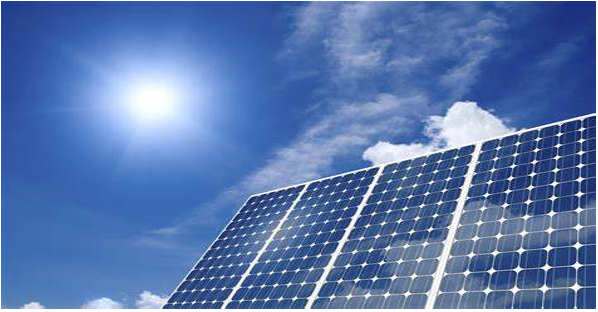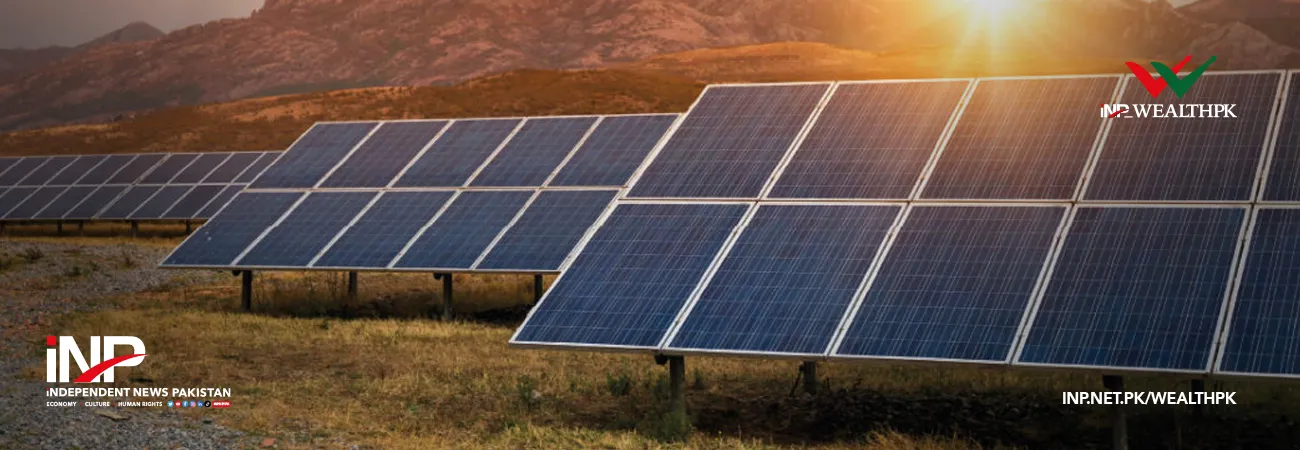INP-WealthPk
Amir Saeed
Pakistan is experiencing a transformative shift toward solar energy adoption, driven by soaring electricity costs and chronic shortages, leading consumers to seek distributed energy solutions for greater affordability and reliability.

Pakistan is undergoing a historic transformation in its energy sector, as highlighted in the report “The Great Solar Rush in Pakistan” by Renewables First, a think tank for energy and environment in Pakistan. This shift, driven by skyrocketing electricity tariffs and persistent power shortages, has led to an unprecedented surge in solar energy adoption. Over the past four years, Pakistan imported solar panels worth $4.1 billion, with 13GW of panels arriving from China in the first half of FY24 alone. This trend signifies a decisive move toward decentralised energy generation, breaking away from the country’s traditionally centralised energy system.
The report notes that grid electricity prices, averaging 13-14 cents per kWh, have made solar energy an economically viable alternative for consumers across residential, industrial, and agricultural sectors. The agricultural sector, for instance, is rapidly going solar to mitigate rising electricity costs. Additionally, net-metering regulations and concessional financing schemes have further incentivised solar installations, with payback periods as short as 2-4 years for many projects. Pakistan’s installed grid capacity of 45,000MW far exceeds its peak demand of 30,000MW during the summer months.
This mismatch has led to consumers paying for unused electricity due to government obligations tied to power plants. Consequently, many are opting for off-grid solar solutions. The surge in solar adoption is reshaping the country’s energy landscape, with projections indicating an additional 10-15GW of solar installations in 2024 alone. However, this rapid transition comes with challenges. The report emphasises the need for grid modernisation and regulatory reforms to manage the influx of distributed renewable energy.
Delays in implementing frameworks like the Competitive Trading Bilateral Contracts Market could hinder Pakistan’s ability to sustain this momentum. The "Great Solar Rush" underscores the country’s potential to exceed its renewable energy targets well ahead of schedule, providing valuable lessons for other developing nations navigating similar transitions. “Pakistan is experiencing a significant surge in solar energy adoption, driven by economic factors rather than environmental concerns,” Zeeshan Ashfaq, Chief Executive Officer of Renewables First, said.
“Millions of people are simultaneously deciding that they have had enough of expensive grid electricity and are rushing towards installing solar PV panels, not because of climate change or government policies, but because economics make perfect sense,” he noted. Ashfaq highlighted that this transition reflects a broader trend where high electricity costs and unreliable power supply are compelling individuals and businesses to seek alternative energy solutions.
He urged policymakers to support distributed generation as part of future energy strategies and stressed the need for reforms that facilitate this rapid shift to solar energy, which is reshaping the country’s energy landscape and reducing dependence on traditional grid systems.
Credit: INP-WealthPk








